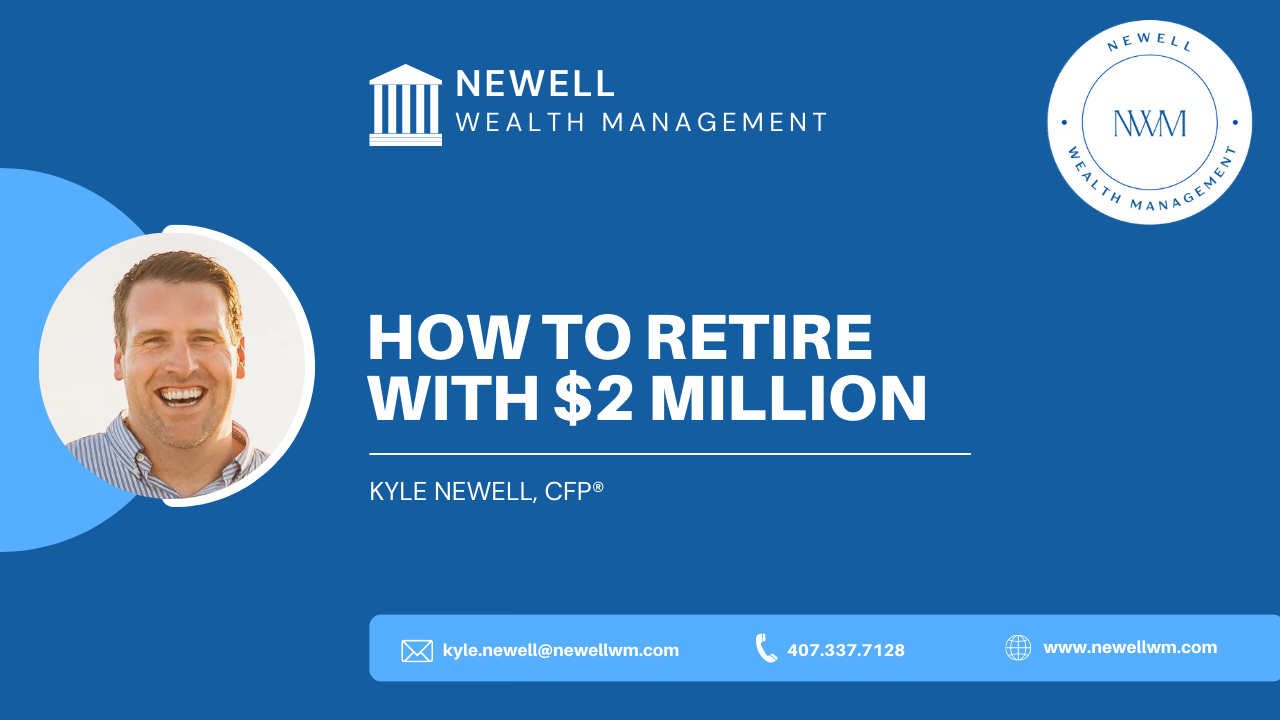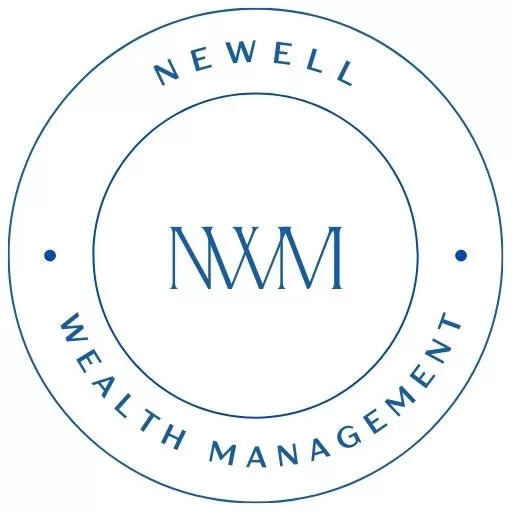How To Retire with $2 Million

Planning to retire with $2 million is a great goal to strive for. While it’s certainly a good amount of money, how far it will go depends on a few things.
- The type of lifestyle you live
- Your retirement goals
- What you’re trying to accomplish
As you’re getting closer to retirement, there are several factors to consider if you plan to retire with $2 million. Let’s look at a few of them.
Objectives
What are you trying to accomplish? What’s the financial objective? Are you looking to retire with $2 million to
- Replace your current income
- Add additional expenses, such as travel
- Purchase a vacation home
It all adds up. Whatever your financial objectives for retirement, you need to start your retirement planning by understanding how much money you will need on a month-to-month or year-to-year basis. Remember to include one-off expenses like vacation, homeowners insurance, and property taxes.
Break expenses down into two categories.
- What are the things you have to spend money on?
- What are the things you want to spend money on?
Add your totals together, and you have a good starting point for how much you will need regularly to cover your retirement plans and objectives.

Health Care
It’s essential to factor in your health care costs. Much of this will depend on when you retire. If you retire before 65, you won’t have access to Medicare. Disney cast members are eligible for a Disney retirement health care plan starting at 65. How will you pay for medical costs until you’re eligible?
COBRA
Some people will choose COBRA, which is basically an extension of your employee health insurance plan. This is an option, albeit an often expensive one.
Affordable Care Act
The Affordable Care Act exchange is also an option. If your income is under a specific limit, you may also receive tax incentives on your health insurance premiums.
Weigh each option’s cost against your expenses to determine what is best for you.
Taxation
The third thing you want to understand is the taxation of your assets. Where is your $2 million?
- A 401k
- Company stock
- Combination of places such as stocks, mutual funds, annuities, 401k, IRA, Roth IRA
- Other types of assets
Why does it matter? Because when it comes to your assets, Uncle Sam is your silent partner. $2 million is your gross number, but a portion may have to go to taxes when you take money out.
Understanding the tax ramifications of each type of asset you have and how that impacts the amount you can withdraw to live off of is vital.
For example, a traditional IRA will be taxable at ordinary income rates. If you are married, filing jointly, and need to take $10,000 a month or $120,000 a year to live on, you will need to take out a larger amount to net $120,000.
You have to project your taxes within your tax bracket standard deduction and any other deductions or credits that you may have to determine your tax rate. Where your $2 million in assets is located, and the tax ramifications for accessing them is a major component when you retire with $2 million.
Inflation
Finally, you want to think about inflation. Aside from lifestyle, goals, and objectives, inflation will undoubtedly affect your retirement finances. As the saying goes, $2 million today is different from what $2 million 20 years ago used to be. $2 million today will be different from $2 million down the road.
Inflation is a certainty. It’s been top of mind recently because inflation has been higher in recent years. Inflation is still around that 5% year-over-year number, depending on which form of inflation you’re looking at. Knowing how inflation impacts your numbers, and planning accordingly, will help you maintain your ideal retirement lifestyle all the way to whenever you no longer need the money.
We never know when our life will end. It may be age 75, 85, or even 100. The idea is to plan financially for retirement so that the money doesn’t run out before you do.
Take Everything Into Account
If you are planning to retire with $2 million, plan accordingly. Consider four essential questions.
- What do you have to spend money on? Expenses, health care, etc.
- What do you want to spend money on? Vacation, hobbies, etc.
- What are the tax ramifications associated with withdrawing your assets?
- How might inflation impact the retirement lifestyle you want?
If you are looking for an experienced financial planner to guide you through retirement planning, I’m happy to help.
We can meet virtually or in person if you live in the Central Florida area. Please email me at kyle.newell@newellwm.com, call/text at 407.337.7128, or schedule a meeting at Schedule – Newell Wealth Management (newellwm.com)
Important Information
Newell Wealth Management, LLC (“NWM”) is a registered investment advisor offering advisory services in the State of FL and in other jurisdictions where exempted. Registration does not imply a certain level of skill or training. The presence of this website on the Internet shall not be directly or indirectly interpreted as a solicitation of investment advisory services to persons of another jurisdiction unless otherwise permitted by statute. Follow-up or individualized responses to consumers in a particular state by NWM in the rendering of personalized investment advice for compensation shall not be made without our first complying with jurisdiction requirements or pursuant an applicable state exemption.
All written content on this site is for information purposes only and is not intended to provide specific advice or recommendations for any individual. Opinions expressed herein are solely those of NWM, unless otherwise specifically cited. Kyle Newell and NWM are neither an attorney nor an accountant, and no portion of this website content should be interpreted as legal, accounting or tax advice. Material presented is believed to be from reliable sources and no representations are made by our firm as to other parties’ informational accuracy or completeness. There is no assurance that the views or strategies discussed are suitable for all investors or will yield positive outcomes. Investment involves risks including possible loss of principal and unless otherwise stated, are not guaranteed. Any economic forecasts set forth may not develop as predicted and are subject to change. All information or ideas provided should be discussed in detail with an advisor, accountant or legal counsel prior to implementation.
